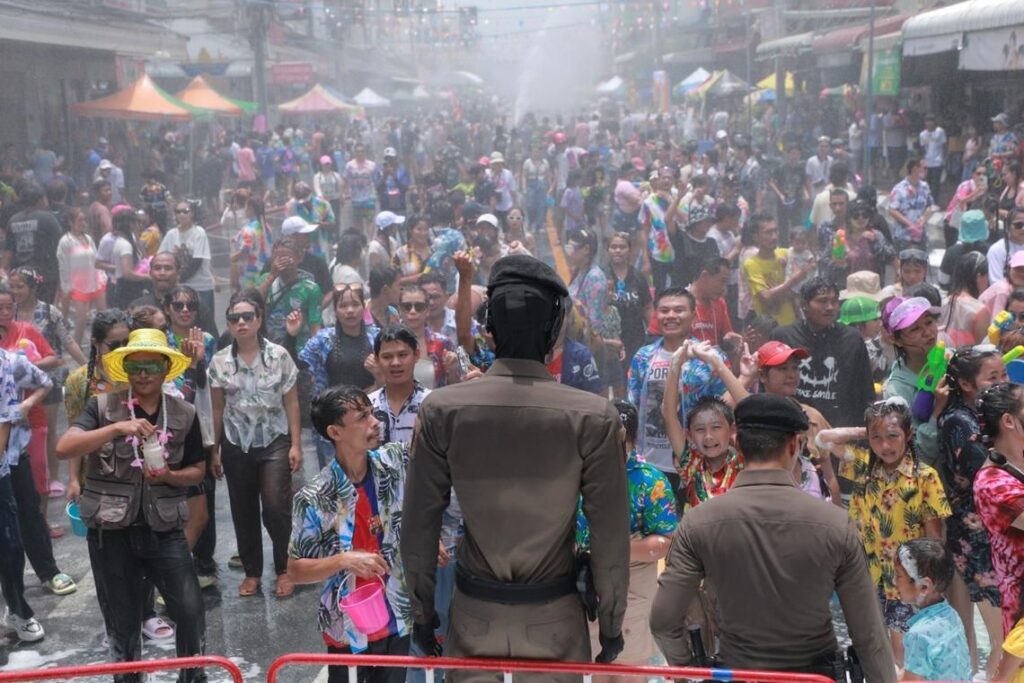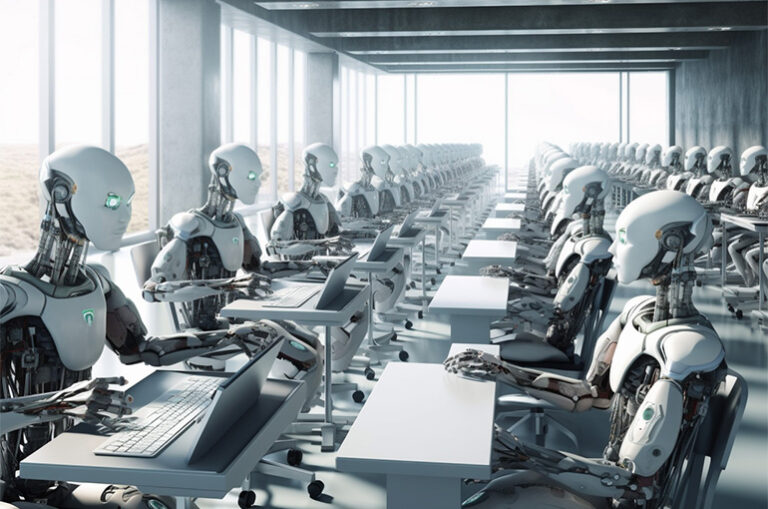
kbtech times | April 27, 2025
Thailand’s announcement of an official robot police force has shaken the foundations of public trust. Presented under the banner of modernization and public safety, the deployment of AI-driven patrol units may, critics fear, herald a far more troubling reality: the quiet, almost invisible erosion of basic civil liberties.
It is not the mere presence of metallic officers that worries activists, but what their acceptance represents. If machines built without conscience are given the authority to police human beings, it raises a grim question: how quickly will society normalize surveillance, profiling, and automation of justice under the guise of keeping people “safe”?
Legal scholars and privacy advocates are already sounding the alarm. Channarong Yothapan, a prominent voice on technology ethics at Thammasat University, warns that today’s harmless robot ID check could soon evolve into something far darker.
“Today it’s robots checking your ID. Tomorrow it’s robots determining your criminal record without trial,” he cautioned during a recent panel on AI and human rights.
The very nature of robots — impartial, unfeeling, devoid of empathy — makes them ill-suited for nuanced, human interactions. Police work often demands understanding, discretion, and emotional intelligence, qualities that no algorithm, however sophisticated, can replicate. When judgment calls are reduced to lines of code, even minor misunderstandings could escalate into irreversible harm.
Further complicating the issue is the question of accountability. If a robotic officer misidentifies a citizen, uses force incorrectly, or causes harm, who will bear responsibility? The manufacturer? The police department? Or will victims find themselves lost in a legal grey zone where no one accepts blame? Current legislation offers few clear answers, leaving a dangerous vacuum at the heart of this bold experiment.
Thailand’s political history — punctuated by cycles of military intervention and curbs on free speech — makes the stakes even higher. Critics argue that introducing unaccountable robot surveillance in such a fragile democratic environment could embolden future leaders to weaponize technology against dissent. Once robots are monitoring protests, recording activists, or enforcing curfews, it will be too late to protest the loss of freedoms that were surrendered inch by inch, not all at once.
There are also growing fears about hidden biases embedded in AI policing systems. Studies across the globe have shown that machine learning algorithms often inherit prejudices from their human programmers or from the skewed data they are trained on. Without rigorous oversight, marginalized groups in Thailand — from ethnic minorities to undocumented migrants — could face disproportionate scrutiny under robotic watch.
Despite these warnings, government officials maintain that robots will initially be deployed for low-risk tasks, such as traffic monitoring and administrative enforcement. They argue that automation will allow human officers to focus on more critical responsibilities. But history has shown that once surveillance infrastructure is introduced, its reach rarely remains limited. What starts as an experiment often expands quietly, driven by political convenience or commercial opportunity.
The move to robot policing reflects a broader global trend toward automating governance itself — a shift that many believe threatens the fundamental relationship between state and citizen. Thailand now finds itself on the frontlines of this transformation. The choices made today could shape not only the future of law enforcement but also the very nature of freedom in an AI-driven world.
The question is no longer whether robots can enforce the law. It is whether, by handing them that power, Thailand is trading away something far more precious: the humanity of its justice.







1 thought on “Inside the Lobbying War: How Tech Giants Pushed Robot Cops Onto Thailand’s Streets”